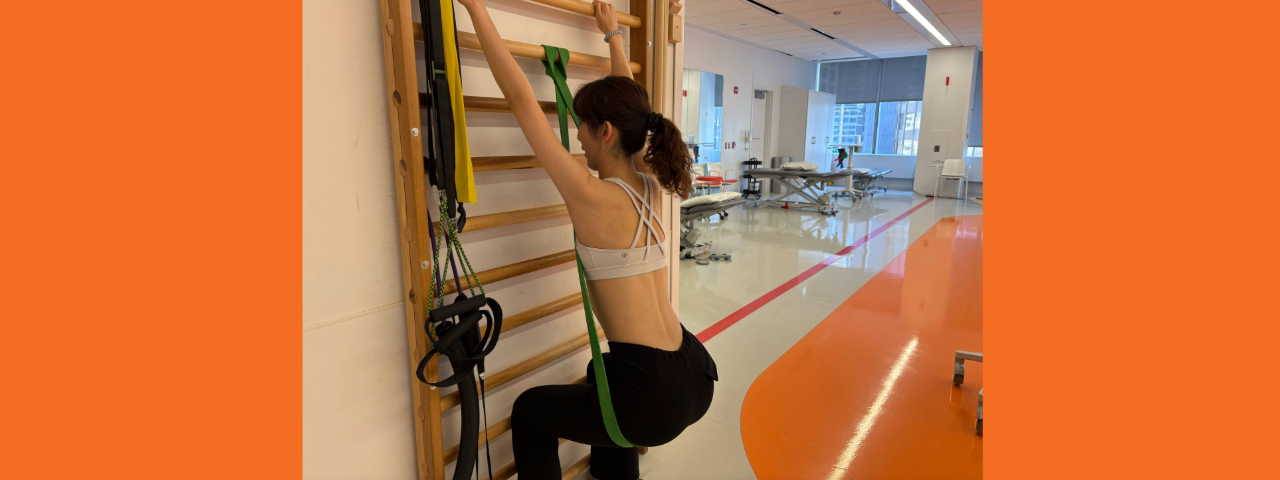Body
Prakash Jayabalan, MD, PhD, is not only the physician-scientist director of Shirley Ryan AbilityLab’s Nancy W. Knowles Strength + Endurance Lab. He also serves as chair of the Healthcare Policy and Legislative Committee for the American Academy of Physical Medicine and Rehabilitation’s (AAPM&R), the primary medical society for the specialty of physical medicine and rehabilitation.
As chair, Dr. Jayabalan (pictured above, center) recently visited Washington D.C. to advocate on behalf of patients. There, he and other physicians from the Healthcare Policy and Legislative Committee lobbied Congress to make changes to the U.S. healthcare system that would produce tangible benefits for doctors, patients and inpatient rehabilitation facilities (IRFs).
In the following interview, Dr. Jayabalan provided insight about the Committee’s focus on advocating for three areas of healthcare reform, including reform to prior authorization — a process requiring approval for treatments and medications by health insurance carriers before a patient receives care.
What does the Healthcare Policy and Legislative Committee do?
Body
It consists of physical medicine and rehabilitation (PM&R) physicians from across the country in different types of practices. What physiatrists do is so tied to the needs of individuals with functional impairments, which makes advocacy absolutely pivotal to the future stability and viability of PM&R and IRFs like Shirley Ryan AbilityLab.
What did your days on Capitol Hill include?
Body
Each of us on the Healthcare Policy and Legislative Committee met with our local congressional offices. For example, I met with the office of U.S. Sen. Tammy Duckworth of Illinois, who has been a significant disability rights advocate throughout her career. In addition, I met with staff members from committees like Finance and Ways & Means.
You are focused on three main areas of healthcare reform, including prior authorization reform. Can you explain more?
Body
We advocated on three main issues: Firstly, for prior authorization reform. There have been trends in misuse and overuse of prior authorization, which has affected patient care. The good news here is that there is now bipartisan legislation that will soon be re-introduced — the Senior Timely Access to Care Act — which will, in addition to other changes, aim to ensure that authorization requests are reviewed by qualified medical personnel and add more transparency regarding Medicaid Advantage prior authorization requirements.
Secondly, we advocated for physician payment reform. Due to the lack of stability in the Medicare Physician Fee Schedule (MPFS), there are concerns that more physician practices are moving away from taking patients with Medicare. On this front, we urged Congress to work with the physician community to establish reliable, sustainable, positive updates to the MPFS.
Finally, we supported an update to the three-hour rule. Current coverage criteria limit certain therapy types — physical therapy, occupational therapy, speech therapy, prosthetics and orthotics — to three hours of therapy per day. However, the Access to Inpatient Rehabilitation Therapy Act, which we encourage voting for, will restore physician judgment by allowing other skill therapies like recreational therapy and respiratory therapy to count toward the three-hour rule.
How did you get involved in legislative lobbying for AAPM&R, and why are you so passionate about it?
Body
I first started during residency, but, over the last few years, I have gotten more involved and more passionate about advocacy. We need to be advocates for ourselves and our patients in local, state and federal systems, so as to maintain the future of our specialty and individuals’ access to care.
During the pandemic, our standing — of both PM&R doctors and the IRFs in which we work — improved considerably. We were seen as integral parts of the healthcare system. Due to the collaborative nature of IRFs and PM&R physicians’ training, we were viewed as a specialty that really came forward in a massive way and worked with nursing and therapy providers to help individuals with serious illness integrate back into the community.
Of course, this is something we’ve always done well — the opportunity now, as I view it, is that we can be seen more broadly as part of the solution to challenges with America’s healthcare system.


